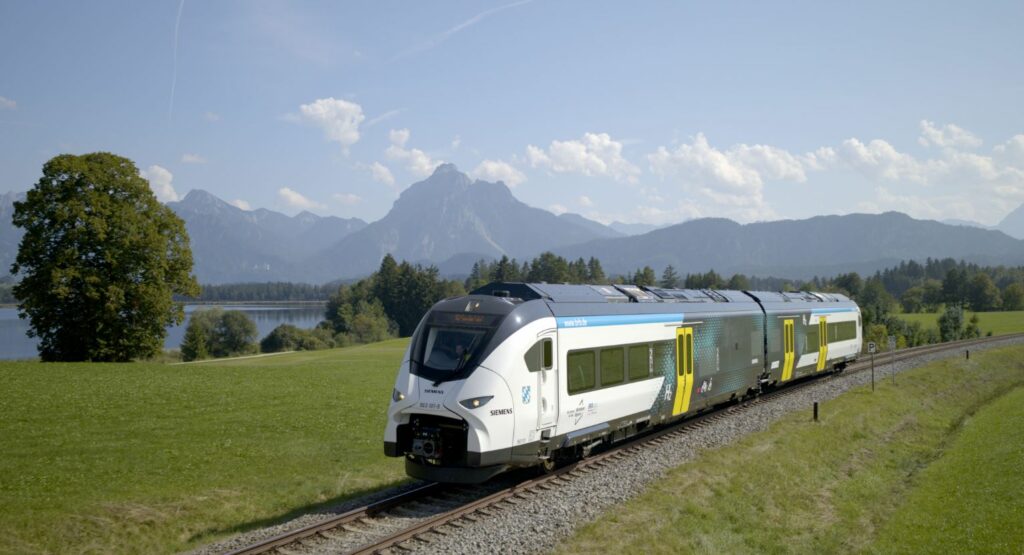Hydrogen technology is emerging as a key solution for decarbonizing the railway sector, particularly on routes that are difficult to electrify. Siemens Mobility and Tyczka Hydrogen have recently signed a Letter of Intent (LoI) to accelerate the shift towards hydrogen-powered railway mobility.
This collaboration aims to cover the entire supply chain for green hydrogen fuel, from production to refueling and maintenance of fuel cell trains.
In April 2024, Siemens Mobility and Tyczka Hydrogen announced their cooperation to develop integrated solutions for hydrogen-powered trains. This partnership includes Siemens Mobility’s subsidiary, Smart Train Lease, which offers hydrogen trains for rent. The goal is to provide comprehensive solutions encompassing hydrogen production, storage, distribution, refueling infrastructure, and the delivery and maintenance of hydrogen fuel cell trains.
Albrecht Neumann, CEO Rolling Stock at Siemens Mobility, emphasized the synergy between the three partners, stating that the collaboration aims to simplify the transition to carbon-neutral mobility. Thomas Zorn, Managing Director of Tyczka Hydrogen, highlighted the benefits of green hydrogen for heavy-duty transport operations, such as fast refueling times and long driving ranges, which offer flexibility comparable to diesel without the need for extensive electrification investments.
Hydrogen fuel cells present a viable alternative to diesel engines, particularly for routes where electrification is challenging or economically unfeasible. Hydrogen-powered trains offer the advantages of reduced emissions and operational flexibility, essential for meeting environmental targets and improving sustainability in rail transport.
However, the adoption of hydrogen technology in railways is still in its early stages compared to more established green technologies like battery-electric trains. Industry benchmarks indicate that hydrogen fuel cells can provide a significant reduction in carbon emissions, but the infrastructure and production capabilities for green hydrogen are not yet as developed as those for electric power.
The initiative by Siemens Mobility and Tyczka Hydrogen is noteworthy but should be critically compared to other efforts in the sector. For instance, Alstom’s hydrogen fuel cell train, the Coradia iLint, has already been operational in Germany, setting a precedent for hydrogen train technology. Alstom’s trains have demonstrated the feasibility and reliability of hydrogen fuel cells in daily operations.
Siemens and Tyczka’s partnership must therefore be evaluated against such benchmarks to determine its competitive edge. The focus on an integrated approach, covering the entire supply chain, is a strategic move that could provide Siemens and Tyczka with an advantage by offering a one-stop solution for train operators.





